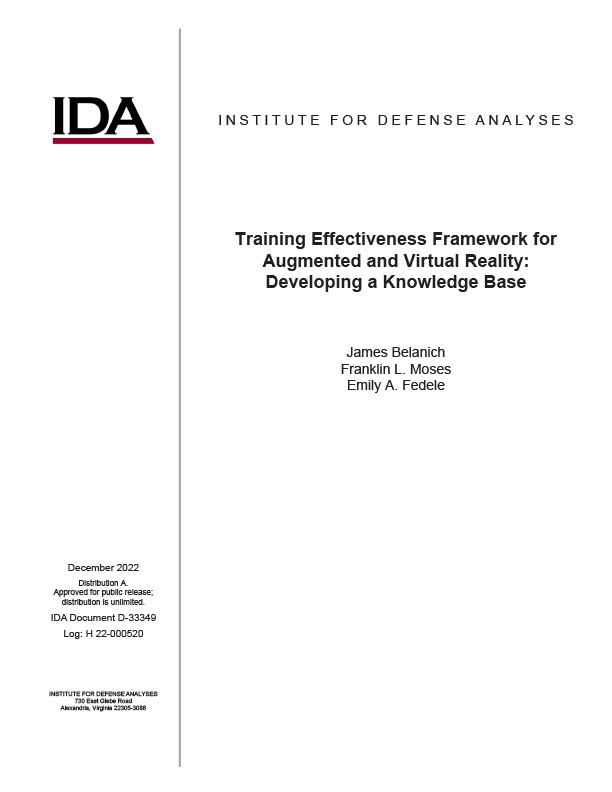Training Effectiveness Framework for Augmented and Virtual Reality: Developing a Knowledge Base
December, 2022
IDA document: D-33349
FFRDC: Systems and Analyses Center
Type: Documents
Division: Science and Technology Division,
Strategy, Forces and Resources Division
Authors:
IDA document: D-33349
FFRDC: Systems and Analyses Center
Type: Documents
Division: Science and Technology Division
Authors:
Authors
James Belanich, Franklin L. Moses, Emily A. Fedele
See more authors

